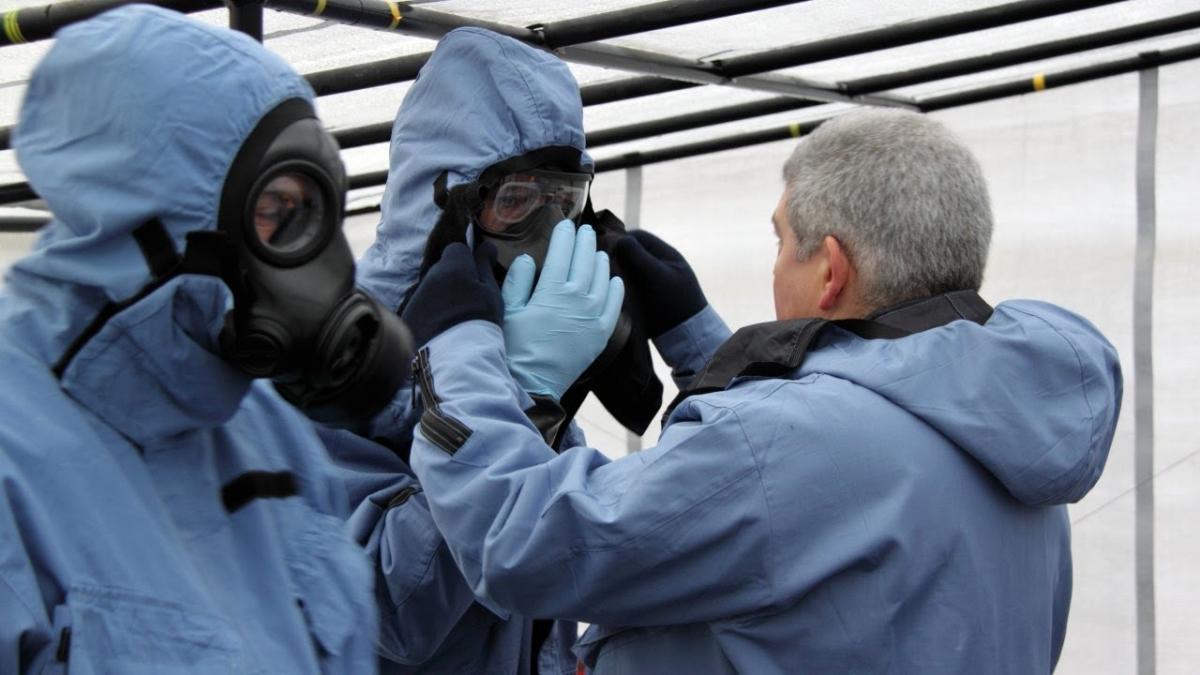
A three-day conference on "upholding the global ban against chemical weapons use" is due to take place in The Hague this week. The conference, officially a special session of states parties to the Chemical Weapons Convention, has been called at the request of 11 countries – Australia, Bulgaria, Canada, France, Germany, Japan, New Zealand, Poland, Romania, the UK and the USA – amid fears that the convention is being seriously undermined by repeated chemical attacks in Syria.
Since its creation in 1993 the convention has been one of the most successful examples of international cooperation. Painstaking work over the years has resulted in at least 80% of the world's known stockpiles of chemical weapons being destroyed, and efforts are continuing to destroy most of the rest. To date, only three countries – Egypt, North Korea and South Sudan – have neither signed nor ratified the Chemical Weapons Convention, plus Israel which has signed but have not ratified.
Having got so close to eliminating chemical weapons entirely, the world can't afford to let anyone start normalising their use. If they can be used with impunity in Syria, others will be tempted to use them too and eventually the convention could fall apart.
Over the last few years the Organisation for the Prohibition of Chemical Weapons has produced numerous reports on the chemical attacks in Syria (and publication of its latest report, on events in Douma last April, is said to be imminent). But while OPCW investigators have uncovered a wealth of information about what happened, under current rules they are not allowed to identify the culprits.
To address that problem, the UN Security Council set up a "Joint Investigative Mechanism" (JIM) with power to apportion blame. Last year it issued a report blaming Syrian government forces for the sarin attack in Khan Sheikhoun and shortly after that Syria's ally, Russia, put a stop to the JIM's activities by vetoing a renewal of its mandate.
Russia has already declared its opposition to this week's conference which starts on Tuesday with an open session followed by two days of closed sessions.
Iran, another ally of Syria, has also raised objections. In principle, Iran vehemently opposes chemical weapons, having been attacked with them during the Iran-Iraq war, but at a meeting of the OPCW earlier this month the Iranian representative, Alireza Jahangiri, argued that the conference was unnecessary and would be "an overburden" on parties to the Chemical Weapons Convention.
Jahangiri added that the convention has resulted in "valuable achievements" based on consensus and that the latest moves threaten to lead to "confrontation and polarisation". On that point at least, he is probably right: the chemical weapons issue has become increasingly politicised as a result of the Syrian conflict. That could have been prevented if Russia, instead of making excuses and promoting ridiculous "alternative" theories about the chemical attacks, had used its influence with the Assad regime to put a stop to them.
This week's conference is likely to politicise the issue further – which is a pity – and whether it will achieve anything remains to be seen. Ultimately, though, there's no point in having a Chemical Weapons Convention unless there is some kind of retribution for countries that flout it.

 RSS Feed
RSS Feed
